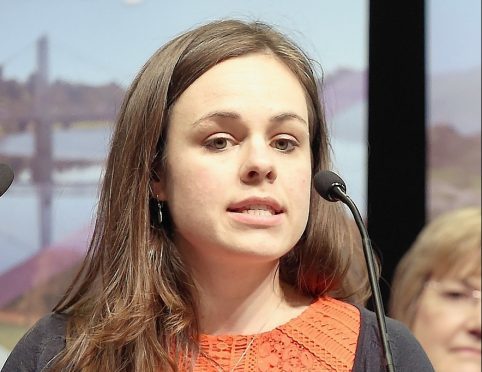The chairwoman of a parliamentary committee has backed calls for the Gaelic language to be awarded Unesco status in order to preserve its cultural heritage.
Kate Forbes MSP, chairwoman of the cross-party committee on Gaelic in the Scottish Parliament, believes such a step would be beneficial as it would help ensure the music and historical traditions are kept alive for future generations.
“I think Gaelic is the key to Highland culture, heritage, tradition and society,” she said. “Although there is no one magic answer to the preservation of Gaelic, Unesco status is certainly one step in many towards it.
“Unesco status basically means that by giving Gaelic ‘intangible cultural heritage’ status it would mean that all the traditions and living expressions inherited from our ancestors, called the ‘seann nos’, are preserved for future generations.”
Ms Forbes, the MSP for Skye, Lochaber and Badenoch, firmly believed that the proposal – provided it was backed by the Gaelic community first and foremost – would command support from across the parliamentary chamber.
Among its many objectives, Unesco aims for the protection of cultural environments “rich in diversity and dialogue” and “where heritage serves as a bridge between generations and peoples”.
The suggestion of Scottish Gaelic being given special status was first raised at the opening of the Royal National Mod, the annual celebration of Gaelic music and culture, held last year in Stornoway.
At the last census in 2011 the number of Gaelic speakers was down to 57,000.
